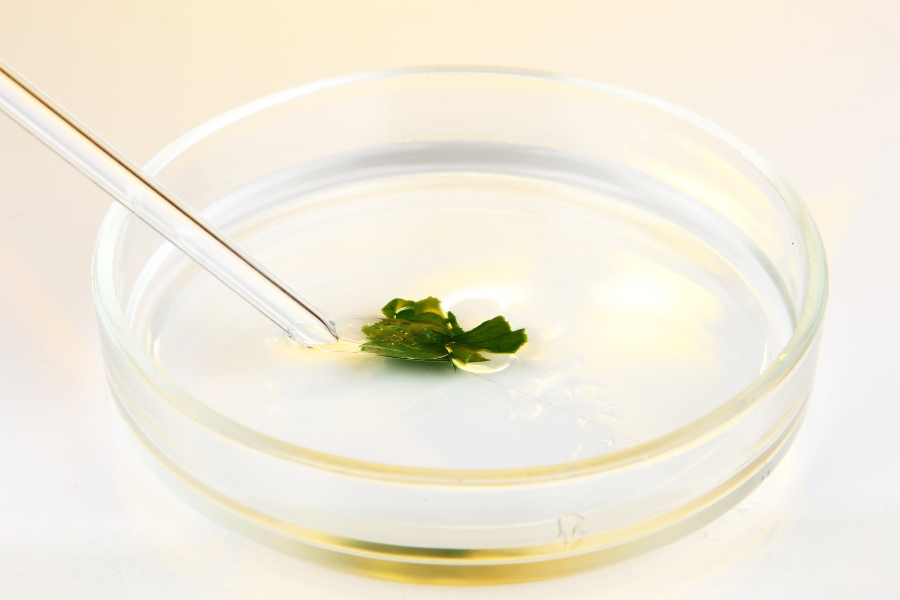
Are Plant Cell Ingredients Natural?
Understanding the Nature of Plant Cell Ingredients
Health-conscious consumers are increasingly seeking products that are environmentally friendly and natural. The term “natural” carries significant weight in the dietary supplement, nutraceutical, and functional food industries. But what does “natural” truly mean? And can plant cell ingredients fit this definition? This blog defines “natural” and explores how plant cell cultivation fits into this category, providing insights for scientists and product formulators in the supplement and food and beverage industries.
Defining “Natural”
The term “natural” can be interpreted in various ways. According to the Britannica Dictionary, it refers to anything that comes from nature and does not contain synthetic ingredients or chemicals. But the U.S. Food and Drug Administration (FDA) and the International Standards Organization (ISO) provide more specific guidelines, which we adhere to at Ayana Bio.
The FDA’s longstanding policy defines “natural” as products that do not contain anything artificial or synthetic that would not normally be expected to be there. The ISO technical standard definition further specifies that natural food ingredients must come from sources such as plants, algae, fungi, animals, microorganisms, mineral deposits, or seawater, and cannot involve fossil fuels. The ingredients must be obtained through physical, enzymatic, or microbiological processing, and these processes must not intentionally produce substances that do not occur in nature.
Ayana Bio’s Commitment to Natural Ingredients
At Ayana Bio, our passion lies in harnessing the power of nature to create healthful bioactives. We achieve this through our platform approaches – BioConserve™, BioDirect™, and BioEnrich™ – wherein we cultivate plant cells to produce high-quality products for our valued customers. Our innovative solutions cater to diverse nutritional needs and consumer preferences.
BioConserve™ uses plant cell cultivation to generate plant cells with bioactive profiles that match those of the native plant. This platform produces natural and high-quality ingredients that can be used for nutrition products.
BioDirect™ uses directed evolution, an accelerated version of breeding, to generate plant cell lines with specific features. We select desired traits by scoring how well variants perform under certain conditions. We then use plant cell cultivation for production. This iterative strategy allows Ayana Bio to improve yield without requiring genetic engineering. This platform also produces natural, high-quality bioactives that can be used for nutrition products.
BioEnrich™ enhances targeted bioactives in our plant cell lines. Ayana Bio can amplify selected traits within cultivated plant cells to accelerate bioactive production. This strategy allows Ayana Bio to increase the concentration of beneficial bioactives within our cell lines or isolate single compounds.
We can process the plant powders resulting from our cultivation methods to obtain bioactives—the same ones you would find in authenticated plants. These processing methods can include physical, enzymatic, and microbial strategies that adhere to the ISO technical standard definition of natural International Standards Organization (ISO), 2017. While physical, enzymatic, and microbial processing aids may be used at various stages of production, we always start with authenticated plant source material and produce a bioactive ingredient that occurs in nature.
Notably, some BioEnrich™ products may fall outside of the requirements for being considered natural if they contain transgenic DNA (DNA not typically found within that species).
We value transparency: These bioengineered products would be clearly labeled. But most Ayana Bio products are non-GMO and non-bioengineered.
Why Plant Cell Ingredients Are Natural
- Source Material: Our bioactives originate from authenticated plant cells, ensuring that the initial source is natural.
- BioConserve™ and BioDirect™ Platforms: These methods used to cultivate and extract bioactives are in line with ISO standards, which allow for physical, enzymatic, and microbial processing without the use of synthetic chemicals.
- Purity and Quality: By cultivating plant cells in a controlled environment, we eliminate the risk of contamination from heavy metals, pesticides, and other harmful substances, ensuring the purity and natural quality of our ingredients.
Plant Cell Benefits for Businesses
- Consistency and Quality: Plant cell cultivation provides unparalleled consistency and ensures each batch meets the highest quality standards, which is crucial for product formulators.
- Sustainability: By bypassing traditional agriculture, this method reduces environmental impact, aligning with the growing consumer demand for sustainable products.
- Customization: The ability to tailor the production of specific bioactives allows our customers the opportunity to innovate and create unique formulations that stand out in the market.
Natural Ingredients for a Sustainable Future
Plant cell cultivation offers an innovative approach to producing natural bioactives, providing a sustainable and high-quality alternative to traditional agricultural methods. At Ayana Bio, our commitment to natural processes ensures that our ingredients meet the strictest standards, offering reliable and consistent phytocomplexes and pure bioactives for the supplement, food, and beverage industries.
By embracing plant cell cultivation, businesses can meet the rising demand for natural products while supporting environmental sustainability and innovation. Discover the potential of this advanced technology and unlock new possibilities for your products today.
 BACK
BACK